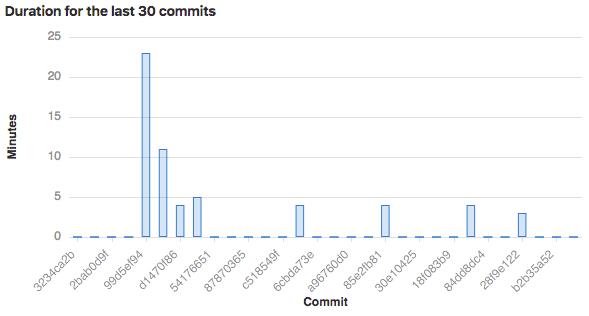CI/CD Analytics
Pipeline success and duration charts (FREE)
- Introduced in GitLab 3.1.1 as Commit Stats, and later renamed to Pipeline Charts.
- Renamed to CI/CD Analytics in GitLab 12.8.
GitLab tracks the history of your pipeline successes and failures, as well as how long each pipeline ran. To view this information, go to Analytics > CI/CD Analytics.
View successful pipelines:
View pipeline duration history:
DORA4 Metrics
Customer experience is a key metric. Users want to measure platform stability and other post-deployment performance KPIs, and set targets for customer behavior, experience, and financial impact. Tracking and measuring these indicators solves an important pain point. Similarly, creating views that manage products, not projects or repositories, provides users with a more relevant data set. Since GitLab is a tool for the entire DevOps life-cycle, information from different workflows is integrated and can be used to measure the success of the teams.
The DevOps Research and Assessment (DORA) team developed four key metrics that the industry has widely adopted. You can use these metrics as performance indicators for software development teams:
- Deployment frequency: How often an organization successfully releases to production.
- Lead time for changes: The amount of time it takes for code to reach production.
- Change failure rate: The percentage of deployments that cause a failure in production.
- Time to restore service: How long it takes an organization to recover from a failure in production.
GitLab plans to add support for all the DORA4 metrics at the project and group levels. GitLab added the first metric, deployment frequency, at the project and group scopes for CI/CD charts, the Project API, and the Group API.
Deployment frequency charts (ULTIMATE)
Introduced in GitLab 13.8.
The Analytics > CI/CD Analytics page shows information about the deployment frequency to the
production environment. The environment must be named production for its deployment
information to appear on the graphs.


